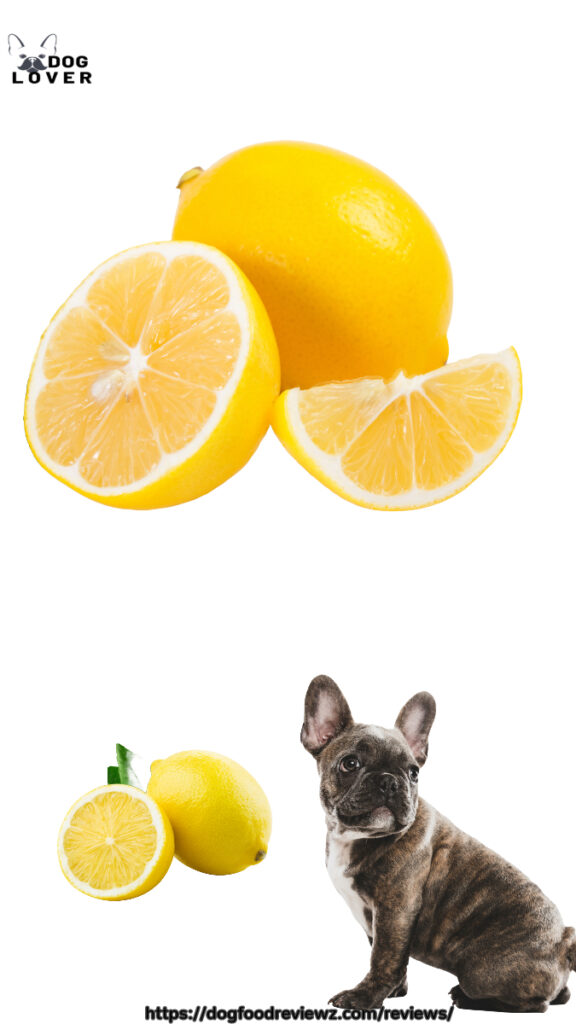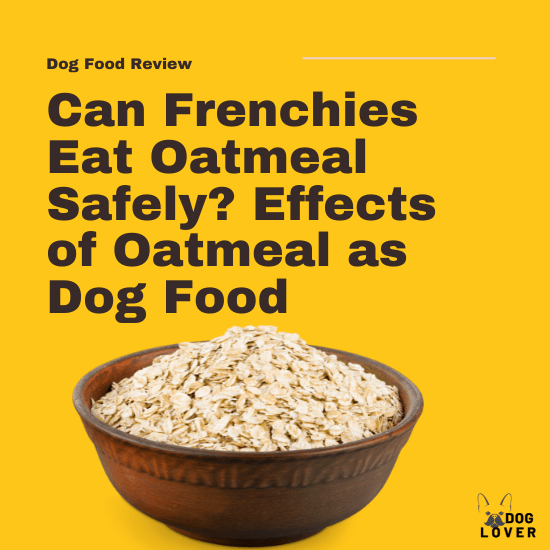Can Frenchies eat lemon?
No, although a bit of lemon is not likely to cause severe harm to your canine companion, it is not something to add to your dog’s diet, and why would you?
Your dog trusts you enough to lick or take a bite if you should offer him a lemon slice, even though it is not a taste many dogs would favor or even enjoy.
Many people find it comical when dogs have strong reactions to a lemon’s taste. But, just like giving a baby a piece of lemon, feeding your dog a lemon is no joke.
Some dogs eat anything they can, and if that is a lemon, the consequences could be severe.
Lemons contain compounds of psoralen, citric acid, and aromatic oils like limonene, that are toxic to dogs, and the effect will depend on the amount the dog consumed.
Symptoms to look out for include vomiting, diarrhea, and unusual sensitivity to light, which would prompt a call to the vet. However, each dog is unique, and while most dogs will only react to significant amounts of lemon, others might be more sensitive.

Can Frenchies Drink Lemon Juice?
No, Frenchies can’t drink lemon juice, but a few drops in your canine companion’s water bowl after vigorous exercise or a game of fetch on a hot day may help your playful pooch recover from fatigue and remain sprightly.
However, never add more than a few drops to your dog’s water bowl because the toxicity of the lemon is also present in its juice. A drop or two of lemon juice in a full water bowl for a Frenchie should be safe. The rule of thumb is that it’s too much if you can taste the lemon’s tartness in the water.
Can Frenchies Eat Candied Lemon?
No, lemons are not suitable for dogs, and they cause them digestive problems. Although lemons aren’t considered toxic to dogs, they can cause them to have diarrhea or vomiting. Preserved, or candied, lemons also contain a lot of sugar, which adds another health risk.
Sugar causes weight gain, diabetes, tooth decay, gingivitis, etc. Some dog owners think they have to share their own treats with their canine companions; however, they never consider sharing dog treats like pig ears and cow hooves.
Can Frenchies Eat Lemon Dessert?
Deserts of any kind are bad for the health of dogs. Whether you have an English Bulldog a Dalmatian, or a Frenchie don’t give in to those begging eyes when you eat Lemon Cake, Lemon Meringue Pie, or something covered with Lemon Jelly, Lemon Jam, or Lemon Curd. You’d do much better giving your precious pup one of his own treats to chew on.
Cakes and desserts are full of sugar and fat and if you’re into rich foods, there might be cream to boot. So not sharing your lemony treats with your canine companion would be the kind thing to do, else he might have to deal with stomach upset, obesity, diabetes, heart disease, and arthritis from eating too much sugar and fat.
Can Frenchie Eat Lemon Fruit?
No, it’s safer to keep your Frenchie away from lemons. Lemons contain compounds of psoralen, citric acid, and aromatic oils like limonene. This compound is in the highest concentration in the lemon’s skin, leaves, seeds, and the white parts of the fruit, known as the pith, making lemons bad for dogs.
The fleshy part of the fruit is not as toxic, but the chances of a dog eating only the flesh are scarce.
People with lemon trees on their property should clear away dropped fruits to prevent curious or playful dogs from getting to them. Some people give their dogs lemons to play with. However, as the dog plays with the lemon, the lemon peels will release some of the limonene oil, which can be harmful to your furry friend.
Can Frenchies Eat Lemon Zest?
No, lemon zest is not at all safe for your Frenchie. Any part of the lemon peel is packed with compounds of psoralen, citric acid, and aromatic oils like limonene. Along with the risks related to ingesting those compounds, lemon zest or bits of peel can cause blockages because they are hard to digest.
Those rinds can remain in your precious pup’s gut for a long time, in fact, they might not digest at all. The consequences could include diarrhea, vomiting, lethargy, and skin problems.
Note that smaller breeds like French Bulldogs have more trouble digesting lemon zest than large breeds like English Mastiffs or Bernese Mountain Dogs.
What Are the Risks of Feeding Lemons to Your Dog?
Dogs that react badly to eating lemons might have any of the symptoms listed below.:
Vomiting or Diarrhea
The citric acid and citrus oils found in lemons can upset your dog’s tummy. You’ll find these in the flesh and peel. Your pup’s symptoms can be mild, but it depends on how much lemon they ate (the more they eat, the sicker they are likely to be).
Dogs with sensitive guts can be affected more significantly. Without treatment, they can become severely dehydrated and unwell. But if your dog isn’t eating or drinking from the start, or they’re reticent, speak to your veterinarian sooner.
Gut Blockage or Choking
Some pet parents might be tempted to give a dog a whole lemon to roll around or play with. Don’t do this. You might think it impossible that a dog can swallow an entire lemon, but you’d be surprised what dogs are capable of swallowing.
Also, be extra careful about where you keep your lemons at home, as they will look like excellent playthings to most dogs. A whole lemon, or large amounts of lemon rind, is not only a choking hazard, but if your pup swallows it in one piece, it could get stuck in their gut.
Dogs with a gut blockage are often vomiting, lethargic, off their food, not pooping, and have tummy pain. They can die if not dealt with quickly, so call your veterinarian if you think this has happened.
Lethargy
Some of the chemicals in lemons, such as essential oils, can make dogs sleepy if eaten in large amounts and not calmly and relaxing. Oils are found in high concentrations in the lemon peel (or rind) and leaves.
In the worst case, dogs can tremor, dribble, and have problems walking. Many lemons would have to be eaten before you might see symptoms of essential oil toxicity.
Skin Problems
Psoralen can cause skin reactions when your dog eats lemons. When exposed to the sun, their skin can become inflamed and develop painful spots and scabs. Dogs shouldn’t be left outside in the direct sun for too long anyway, even if they haven’t been eating lemons.
What are the best dog foods with Lemons?
Well, this time, as expected, we could not find a single manufacturer of dog food with lemons included in their recipes.
Are Lemons Toxic to Dogs?
Lemons contain psoralen and limonene, which are toxic to dogs, cats, and horses. Psoralen, found in seeds, pith, and peel, can cause DNA mutations and increase UV sensitivity. Limonene, primarily in the peel, is a potent essential oil. Both compounds make lemons harmful to these animals.


